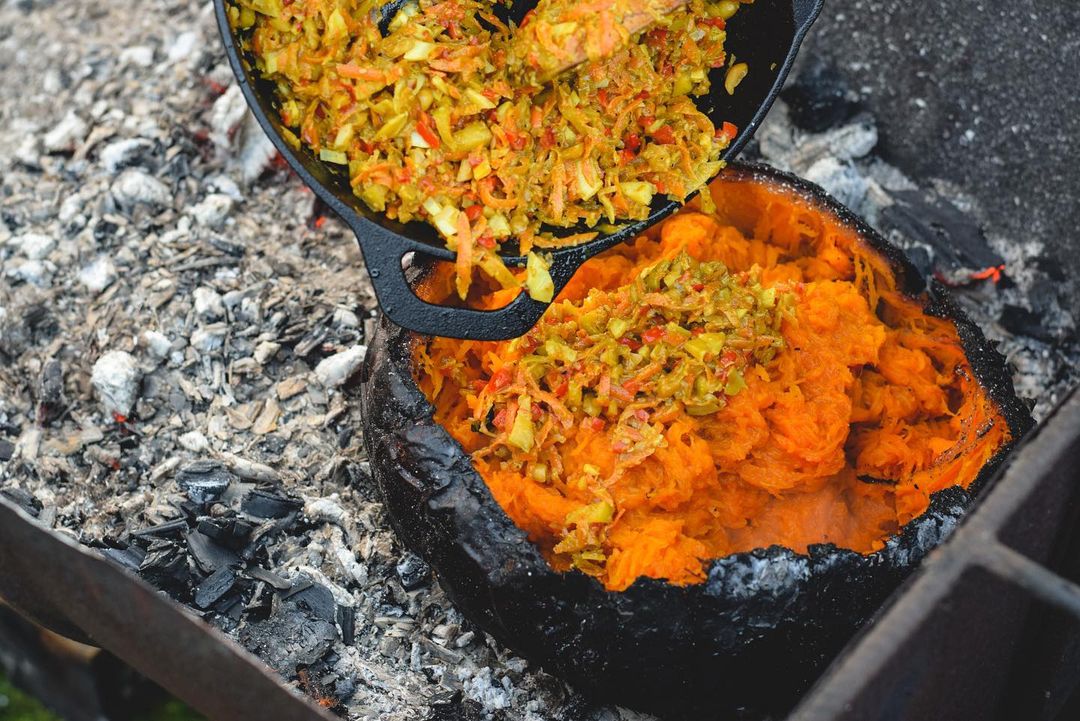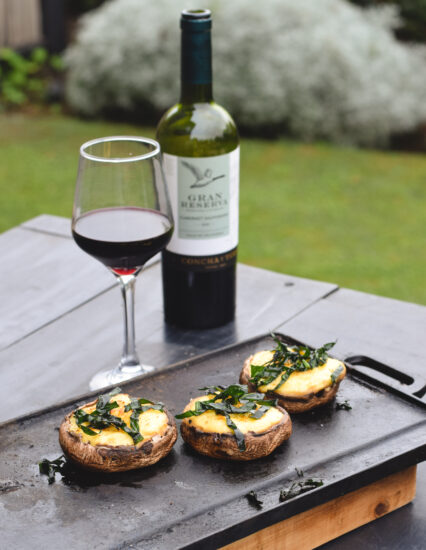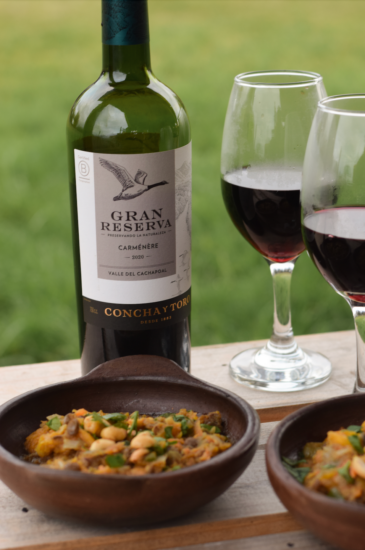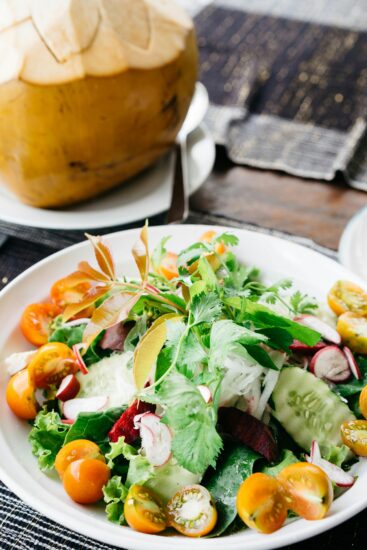Tips for pairing wines with vegan food


Whether you are vegan or not, considering the increase in the offer of vegan dishes in restaurants, perhaps you have wondered which are the best wines to pair with this food. We’ll tell you here.
The increase in people following a vegan diet has led many to wonder if it is possible to pair these dishes with wine? Fortunately, thanks to the certification of vegan wines, it is possible. But what does it mean for a wine to be vegan? If wine is a product that comes from the fermentation of grape juice, why might it not be compatible with a vegan diet?
Although the wines come from a fruit: the grape, they are not necessarily vegan. You may be surprised to know that animal products are sometimes used in its preparation. Mainly in the process of clarification or “cleaning of wine”, for which the industry developed techniques that use products such as egg white, casein (protein derived from milk), gelatine (from fish cartilage) or ichthyocola (from fish bladder), to eliminate sediments that cannot be removed by filtration alone. Although these are removed after the process, they are usually not mentioned…but always very informed vegans usually know about these processes. For this reason, vegan certification ensures that no animal derivatives are used in the wine process. But, instead, vegetable or mineral products are used, such as carrageenan, or potato and pea proteins, among others.
The good news is that all Gran Reserva Cabernet Sauvignon and Gran Reserva Carmenère wines obtained the international V-label certification (of Swiss origin), which confirms that they are vegan wines, ideal for pairing with this type of dishes. Here we tell you how to achieve an incomparable experience.

Then, for almost everything else, the best option is red wines. For legumes such as beans, lentils, vegetables such as eggplants, mushrooms, peppers, tomatoes, and then for vegetable proteins such as tofu, soy meat or tempeh. Depending on its preparation, you must choose the body of the wine. But considering that they are denser proteins that can withstand wine tannins or earthier flavours, these pair well with red wines.
For dishes like a mushroom risotto, a grape variety like Pinot Noir can work, while for more intense dishes, with a lot of umami, such as stews based on legumes and mushrooms, for example, Gran Reserva Cabernet Sauvignon or Gran Reserva Carmenère could be suitable. As well as for preparations with a large presence of tomato, such as an Aubergine lasagna or a Ratatouille. Another increasingly popular preparation is vegan burgers based on legumes, these also work well with red wines with good body and soft tannins such as Gran Reserva Carmenère.

For those people who follow a mainly plant-based diet, and who like wine, their best ally will always be white wines. Due to the freshness of vegetables, also those high in chlorophyll, especially when served raw, juicy, crunchy, fresh white wines are a great ally. Varieties such as Sauvignon Blanc work very well with salads, citrus dressings, asparagus… or also fried foods such as a Courgette flower in tempura, to mention an example. If you prefer a wine with a little more body, rosé wines also work very well for these meals. Another excellent pairing with rosé is Middle Eastern food, such as falafels, hummus and stuffed grape leaves, to name a few.

For dishes based on cooked, roasted, or grilled vegetables, which acquire greater complexity in flavour thanks to cooking, oaked white wines are a great option. Think about roasted pumpkin, cauliflower or those preparations that do without heavy cream and opt for substitutes such as coconut milklike a a Thai Green Vegetable Curry. Indian cuisine, which has a long tradition of vegetarian and spicy preparations, is another candidate to pair with this wine.

We comply with the highest standards of verified social and environmental performance, transparency, and legal responsibility to balance benefit and purpose.
We adopt an Impact Business Model, creating beneficial links between business, community, and environment.
The Gran Reserva vineyards are an important part of the project to conserve native forest areas and protect local biodiversity. Our native forests have the ability to retain rainwater and control the kind of climate change that results from water shortages.
We take care of 1,432 hectares of protected forests and, on average per vineyard, a total of 105 species of fauna and 48 species of registered flora.
Our effort to preserve nature begins with responsible water consumption. 99% of the water we use comes from surface and subterranean sources.
Our vineyards are drip irrigated, which translates to a 90% efficiency on water consumption, and over the past 3 years, we’ve reduced our water footprint by 10%.
All of our winemaking processes require the use of energy. Our choice to invest in clean, renewable energy reflects our desire to co-create a sustainable planet for the future.
100% of the electricity used to make the wines in the Gran Reserva collection come from renewable sources, including solar energy.
Concha y Toro has been certified under the Wines of Chile Sustainability Code since 2012, which means that our vineyards are officially recognized as sustainable vineyards.
The wines in our Gran Reserva collection are crafted entirely from estate-owned grapes in sustainably managed vineyards.